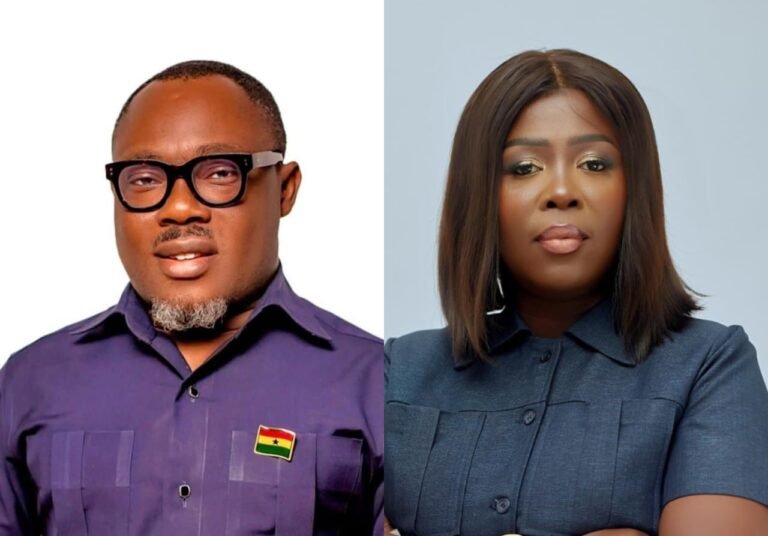
Dr. Paul Herzuah, Political & Media Communications Expert / UniMAC Lecturer
By Bright Philip Donkor
Dr. Paul Herzuah, a political and media communications expert and lecturer at the Faculty of Journalism and Media Studies at the University of Media, Arts and Communication (UniMAC), says that Ghana may not be ready for another hung Parliament, as the country approaches its parliamentary and presidential elections on December 7.
In a comprehensive four-page statement copied to the Daily Statesman, Dr. Herzuah delved into the significant implications of the looming specter of a hung parliament for Ghana’s democracy. He meticulously examined this unprecedented political scenario, citing the potential challenges and opportunities it presented for governance and public policy in the country. He also offered recommendations on the necessary steps that should be taken to navigate this complex political landscape, emphasizing the importance of dialogue, cooperation and effective compromise among political parties.
Historic prelude
According to the statement, when the Eighth Parliament of the Fourth Republic was sworn in on January 7, 2021, it marked a historic moment for Ghana. “For the first time, the Parliament was split evenly between the two dominant parties—the New Patriotic Party (NPP) and the National Democratic Congress (NDC)—each securing 136 seats. It indicated that this unprecedented configuration set the stage for a unique political dynamic, culminating in the election of Hon. Alban Sumani Bagbin from the NDC as the Speaker of Parliament, despite the NPP’s claim to a majority,” the statement read.
Dr. Herzuah stressed that this hung Parliament situation, characterized by a razor-thin majority for the NPP, had introduced a new layer of complexity to governance. The statement said the NPP’s narrow lead was bolstered by the defection of independent MP Asiama, but the situation remained delicate. “The balance of power in the House created an environment ripe for contention, leading to a series of confrontations and disruptions in parliamentary proceedings,” he noted.
Tensions and turmoil
He added that since its inception, the Eighth Parliament had been anything but peaceful. He mentioned that the country had witnessed shameful displays of violence among MPs, including physical altercations and the use of incendiary language.
“The tension reached a boiling point on October 17, 2024, when Speaker Alban Bagbin declared four parliamentary seats vacant, allowing the NDC to temporarily assume majority status. This decision sparked legal challenges from the NPP, leading to a standoff between the legislative and judicial branches of government,” the statement added.
Dr. Herzuah emphasised that these developments had left many Ghanaians on edge, particularly as the country geared up for the crucial elections in December. In his view, the public is grappling with whether a hung Parliament would serve as a catalyst for democratic development or further entrench political dysfunction.
Public perspective
He referenced a recent survey by Afrobarometer which revealed that opinions on the effectiveness of a hung Parliament were mixed among Ghanaians. “Nearly half of the respondents believe that the current situation has enhanced MPs’ ability to scrutinize government spending, while others argue that it prevents the ruling party from unilaterally imposing policies without consensus”. He indicated that this sentiment reflected a nuanced understanding of the potential benefits and drawbacks of a hung parliament.
Dr. Herzuah posited that a hung Parliament could compel the ruling government to make necessary compromises, and foster cross-party collaboration. He noted that such a political landscape would require more negotiation and consensus-building, ultimately benefiting the citizenry by ensuring greater accountability and transparency in governance.
Global context
Dr. Herzuah explained that the phenomenon of hung Parliaments was not unique to Ghana. He said countries like the United Kingdom, Italy, Germany, and Israel had all navigated the challenges and complexities of coalition governance.
“The UK’s experience with a hung parliament during the Brexit negotiations highlights the difficulties inherent in achieving consensus among competing interests. Similarly, Italy’s coalition government faced disputes that hampered effective governance,” Dr. Herzuah’s statement indicated.
He further drew parallels to these international examples, suggesting that while the challenges of a hung Parliament could be daunting, they also present opportunities for more inclusive decision-making processes.
Is Ghana prepared?
In Ghana, the last few weeks has seen soaring tensions in the country because of power play between the legislature led by the Speaker of Parliament and the Judiciary led by the Chief Justice of Ghana’s Supreme court. He argued that the current parliamentary dynamics, characterized by a narrow majority held by the ruling government, had led to a situation where the mechanisms of checks and balances were put to the test.
“This situation has arisen because of the hung nature of the 8th parliament. From all indications, this type of parliament, via its mechanism of checks and balances, would have been ideal particularly in streamlining the excesses of the ruling government, which also holds a majority in parliament,” Dr. Herzuah stated. He further posited that while a hung Parliament had the potential to serve the interests of the citizenry by fostering accountability and cooperation, the experiences of the past four years had raised doubts.
He lamented that the hawkish demeanour exhibited by MPs from both the National Democratic Congress (NDC) and the New Patriotic Party (NPP) had often resulted in acrimony rather than constructive dialogue. He expressed apprehension about whether Ghana was truly prepared for another hung Parliament in the upcoming 9th Parliament, especially given the entrenched posturing and factionalism observed.





